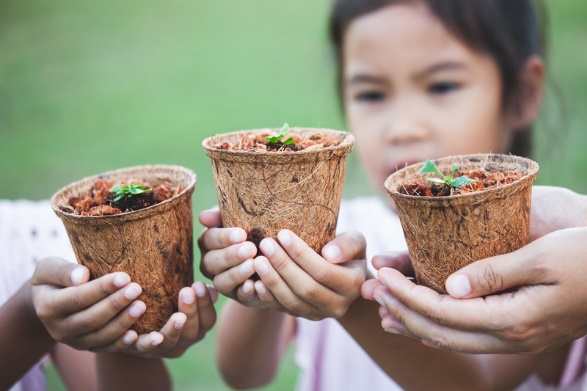Stay the Course During the Coronavirus Emergency: Your Work is Critical
Print this Article | Send to Colleague
 |
| Tell Your Customers: "Stay home and garden. What else are going to do? Use CERTIFIED COMPOST!” |
As impacts of COVID-19 continue to escalate, we’ve been gathering resources, ideas and thoughts for you. Today’s message is focused on our largest membership group, compost producers.
It’s important to be transparent about what we don’t know: the life of this virus in compost at proper Process to Further Reduce Pathogens (PFRP) facilities is not tested.
However, what we do know is:
- There is no current evidence from surrogate human coronaviruses that they are present in surface or groundwater sources or transmitted through contaminated drinking water. The COVID-19 virus is an enveloped virus with a fragile outer membrane. Generally enveloped viruses are less stable in the environment and are more susceptible to oxidants.1
- What does this mean? It means that with all the proper precautions you already take in your industrial compost process, (mixing into ASP, windrows or other processes), it is unlikely this virus is transferrable in commercial compost piles that have reached PFRP. Precautions to take in your process:
-
Workers should wear OSHA recommended PPE when handling and mixing raw feedstocks.
-
Equipment used for feedstock material handling and mixing should not be used for curing, screening or loading of finished compost products.
-
Feedstock receiving and mixing should be downstream or physically separated from finished product storage.
-
Equipment buckets, tracks and tires should be steam cleaned of disinfected with an EPA approved sanitizer before entering any curing or finished product area.
-
Transport vehicles and general public traffic should not enter these areas.
-
Feedstock transport trucks should not be used to transport curing or finished compost.
-
Employees should follow CDC guidelines for sanitation and hand washing.
-
- For your customers, collection of food waste in a compost bin is no more or less dangerous than putting it in a trash can. (Collectors are cautioned to collect restroom waste in a sealed compostable bag.
- Composting is a vital part of community infrastructure. Staying open at this time helps keep methane-generating materials from the landfill. Of course, should decide if the risk to your community outweighs that mission.
- Protect your employees, customers and vendors through sanitizing and CDC recommended social distancing
- Monitor local guidance and stay up to date on local restrictions.
- Follow application instructions issued by your STA Compost producer.
Keep Up Your Good Work!
While taking time to be sure all of the proper precautions are being followed in your facility, we encourage you to continue producing the organic matter—compost—we need for healthy soil. It is important that we continue to be the source of life-giving compost, which is our mission.
- Monitor local guidance and stay up to date on local restrictions.
- Follow application instructions issued by your STA Compost producer.
OTHER RESOURCES:
US EPA Literature review of effectiveness of pathogen reduction
https://www.epa.gov/sites/production/files/2018-12/documents/plain-english-guide-part503-biosolids-rule.pdf
Safety Gear (PPE) at Compost Facilities: https://www.aphis.usda.gov/animal_health/emergency_management/in-house_composting/scopage_dir/ovr/ppe.html
Composting for Avian Influenza Virus Elimination: https://www.ncbi.nlm.nih.gov/pmc/articles/PMC3346479/

